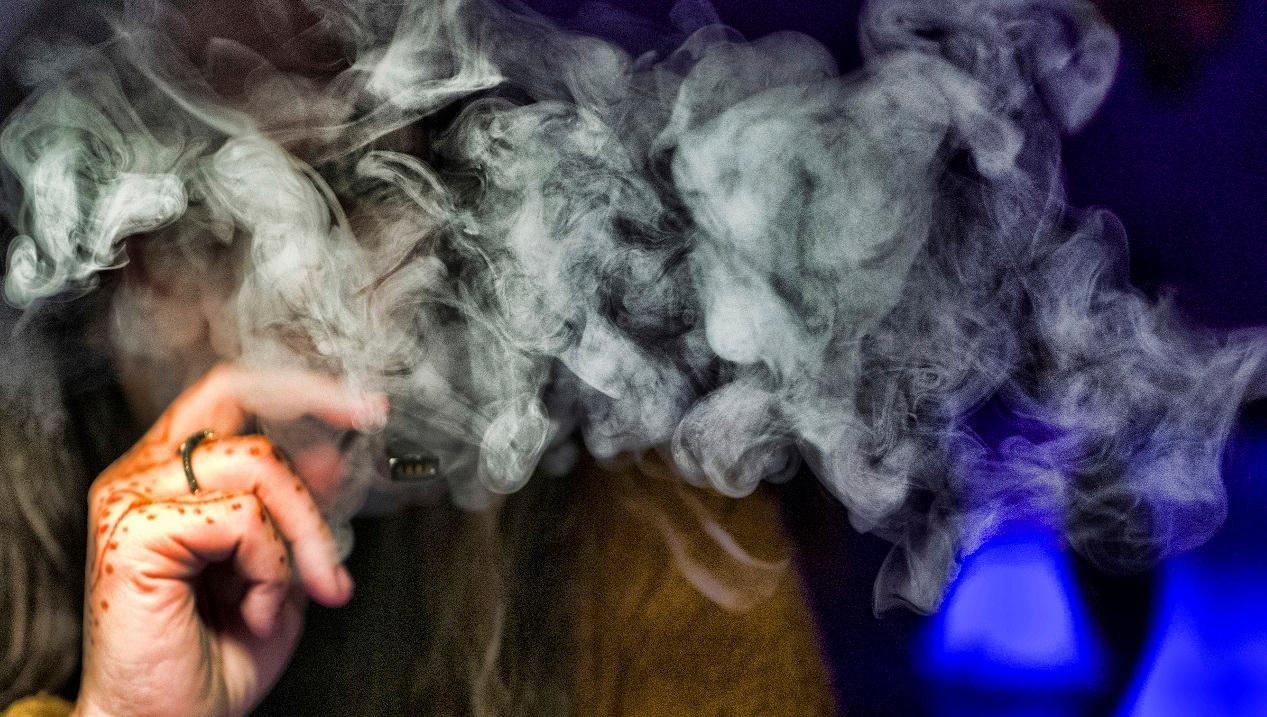Flavored e-cigarette ban is 'overreaching,' vape shop owners say
Vape shop owners are worried a Trump administration proposal to ban all non-tobacco flavors of e-cigarettes could kneecap the $6 billion-a-year industry.
The Food and Drug Administration is currently finalizing new rules that would ban fruity flavors, as well as flavors like mint and menthol, and remove them from the market within 30 days.
The proposed ban comes amid accusations that e-cigarette makers have marketed to underage customers as well as concerns about 450 cases of lung illnesses including six deaths the CDC is investigating for possible connections to vaping.
"We are looking at vaping very strongly," President Trump said this week. "It's very dangerous. Children have died, people have died. ... We're going to have some very strong rules, regulations, and more important I think we're going to have some very important information come out very shortly. And we'll be reporting that over the next couple of weeks."
Vape shop owners who spoke to FOX Business estimated that flavored e-cigarette cartridges commonly called e-liquid or “vape juice” account for somewhere between 85 and 95 percent of their sales. Owners like Danny Canceleno of The Salty Vapor in Daphne, Alabama, said a ban of those products would gut their businesses and force them to close.
“It will close my doors,” he said. “Absolutely.”
The CDC hasn’t caused the specific cause of the lung illnesses it’s investigating, but it recommends that people refrain from using e-cigarettes in the meantime.
But vape store professionals said the products they sell aren’t the ones causing the illnesses, and they’re just being scapegoated because of legal gray areas around the real issues: online sales and marijuana.
Chris Dofort, who owns Vapor Life in Fort Lauderdale, Florida and Vape 45 in Hudson, North Carolina, said online markets allow unsafe vaping products from overseas to reach U.S. customers, including underage consumers. His stores and others like them check customers’ IDs to ensure they’re of age, and he said they face undercover enforcement just like liquor stores.
“Vape stores do not want to sell to underage kids,” Dofort said.
Still, teens are vaping. About 4.9 million middle and high school students said they were current users of e-cigarettes last year, according to the FDA.
Bennett Kennedy, the operations manager for a chain of vape shops in North Carolina, questioned why officials wouldn’t just ban online e-cigarette sales.
“When a customer comes into the store, they’re IDed and no one underage can buy,” he said. “But if they buy online, nothing is stopping them.”
Kennedy said his shops only carry products from brands that follow FDA guidelines. People are getting sick, he said, by vaping homemade concoctions or illegal cartridges with THC.
THC cartridges present officials with a problem. Because marijuana is still illegal at the federal level, the FDA can’t regulate them. But since some states have legalized marijuana, they’re still being sold in some locally-legal dispensaries. A widespread flavor ban could take them off shelves.
By closing vape shops with a widespread ban, Canceleno, the Alabama store owner, said officials could inadvertently create a black market fueled by home manufacturers selling dangerous products, worsening the lung health problem.
CLICK HERE TO READ MORE ON FOX BUSINESS
Shop owners said they were trying to drum up opposition to the ban. Dofort said he’d “signed every petition that’s been made.” Canceleno tagged the president in a Facebook post and called the White House to express his concerns.
“It’s going to close 10,000 shops and 110,000 people are going to be out of work, and that doesn’t include the manufacturers and distributors,” Canceleno said. “The government is overreaching.”




















